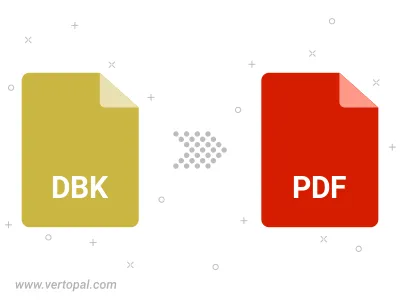Convert DBK to PDF
Convert DBK markup documents to PDF format, edit and optimize documents online and free.

The DBK file extension stands for DocBook Technical Document, a semantic markup language used for creating technical documentation in a format-neutral way. Initially developed for computer hardware and software documentation, it allows content to be easily converted into various formats like HTML and PDF. DocBook has become a standard for technical documentation due to its flexibility and open-source nature.
The Portable Document Format (PDF) is a file extension created by Adobe Systems in 1993 to facilitate document exchange across different systems. PDFs preserve the formatting of source documents, making them ideal for sharing text, images, and graphics in a consistent manner. Commonly used for forms, manuals, e-books, and reports, PDF files are platform-independent, ensuring the content appears the same on various devices and operating systems. This versatility has solidified its status as a standard in digital documentation, enhancing both compatibility and security in file sharing.
Click Choose File to upload a DBK markup document from your device.
Choose optional DBK to PDF tools for advanced conversion.
You will be redirected to the download page to obtain the PDF document.

Convert DBK to password-protected PDF.
Vertopal CLI manages conversion from DBK markup document into PDF document once installed.